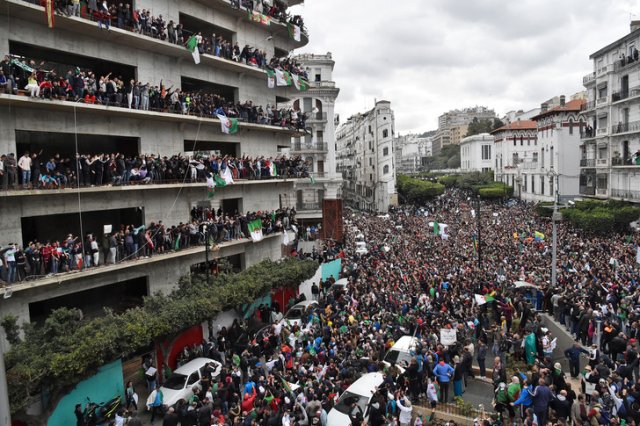
The popular demonstrations of 22 February 2019, which are taking place simultaneously in most of the major Algerian cities but also in many medium-sized cities, undeniably constitute the opening of a new historical sequence in Algerian political history. They mark the entry into the political arena of a new socialized generation over the past two decades, i.e. after the trauma of the « Black Decade » [1].
In economic terms, these are characterised by the growing polarisation between a social minority that is a client of the rentier state in scandalous enrichment and a large majority in continuous impoverishment as a result of liberal policies of deindustrialisation, privatisation and the dismantling of public services [2]. They are politically characterized by the lack of a credible alternative due to the attempt by the Algerian state and the classes it represents to impose a binary game that the "opposition" parties have not challenged because of their adherence to the economic liberalization undertaken by the state with forced march: chaos or resignation [3].
They are characterized on the "identity" level by the integration of the current of "political Islam" within the State apparatus and the comprador bourgeoisie [4]. They are sociologically characterized by increasing urbanization, an age pyramid with a very broad base, a high school enrolment rate and an openness to the world through social networks [5]. Finally, they are characterized in terms of the life experiences of this youth by the restriction of the field of possibilities to resourcefulness and the "haraga" [6].
It is this explosive cocktail that comes to maturity with the announcement of the fifth term of office, making it the economic pretext that expresses a systemic causality like a dam that explodes after the continuous and invisible accumulation of pressure over the past two decades.



